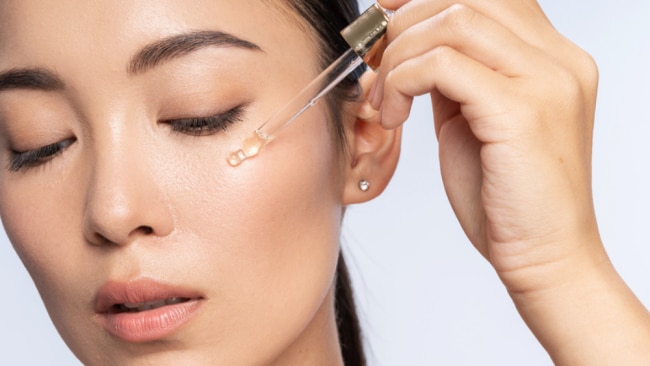In the hustle and bustle of modern life, stress has become an almost unavoidable companion. While its impact on mental health is well-known, its consequences on our skin are equally significant. In this article, we'll explore the intricate relationship between stress and skin health and delve into effective strategies to combat its adverse effects.
Understanding the Link: Stress and Skin

Stress isn't just a mental phenomenon; it profoundly affects our skin. The mind-skin connection is a complex interplay, with stress hormones triggering various responses that can manifest visibly on the skin. Understanding this link is crucial for developing effective strategies to combat stress-related skin issues.
Common Skin Issues Caused by Stress
Stress may have a variety of consequences on the skin, including flare-ups of psoriasis and eczema and breakouts of acne. Chronic stress can also hasten the aging process, causing fine lines and wrinkles to appear earlier than they otherwise would.
Impact of Chronic Stress on Skin
Extended periods of stress exposure may have long- term effects on the skin. The immune system is weakened by ongoing stress, which increases the skin's vulnerability to infections. It's critical to understand the long-term effects and act pro-actively.
How Stress Affects Skin Barrier Function

The skin barrier's capacity to hold moisture and defend against outside aggressors is compromised when stress damages it. The skin's natural healing and repair processes are hampered by this disturbance, which also causes dry and irritated skin.
Combatting Stress for Healthy Skin
The secret to keeping great skin is stress management. Mindfulness, meditation, and deep breathing exercises are examples of stress-relieving strategies that you may include into your regular routine to improve your mental health and skin health.
Skincare Tips for Stressful Periods
The selection of calming and mild skincare products becomes crucial during periods of increased stress. Creating a regular skincare regimen keeps the skin healthy generally and gives one a sense of stability.
The Role of Diet in Stress-Resistant Skin

Nutrient-rich foods play a crucial role in supporting the skin during stressful periods. Incorporating foods rich in antioxidants, vitamins, and omega-3 fatty acids contributes to skin resilience. Conversely, avoiding stress-aggravating foods is equally important.
Holistic Approaches to Stress Reduction
Taking a holistic approach to stress reduction involves activities like yoga and meditation that address both mental and physical well-being. These practices not only alleviate stress but also promote overall health, reflecting positively on the skin.
Professional Support for Stress-Induced Skin Problems
In severe cases, seeking professional help is essential. Dermatologists can provide targeted solutions for stress-induced skin problems, while mental health professionals offer support in managing stress from its roots.
Myth Busters: Common Misconceptions about Stress and Skin
Dispelling myths around stress and skincare is crucial for informed decision-making. We'll address common misconceptions to ensure a clear understanding of the relationship between stress and skin health.
The Importance of Self-Care
Self-care isn't just a buzzword; it's a fundamental aspect of maintaining healthy skin. Embracing self-care practices tailored to individual preferences is a powerful step toward combating stress and nurturing radiant skin.
Environmental Factors and Stressful Skin Conditions

External stressors, such as pollution and climate changes, can exacerbate stress-related skin conditions. Implementing protective measures against these environmental factors complements stress management efforts.
Impact of Sleep on Stress and Skin
Quality sleep is a cornerstone of stress reduction and skin health. Establishing healthy sleep patterns contributes to overall well-being, positively influencing the skin's ability to regenerate and repair.
Conclusion
In conclusion, the impact of stress on our skin is undeniable. Acknowledging this connection and taking proactive steps to combat stress is not just beneficial for mental health but also crucial for maintaining radiant and healthy skin. Prioritizing stress management becomes a holistic approach to overall well-being.
FAQs
Q. Can stress cause permanent damage to the skin?
Ans: Prolonged stress can lead to long-term consequences, including skin damage. However, proactive stress management and proper skincare can mitigate these effects.
Q. Are all skincare products effective in combating stress-related skin issues?
Ans: Not all products are equally effective. Choosing products with soothing ingredients and a focus on skin barrier repair is essential during stressful periods.
Q. Is stress the sole cause of skin issues like acne?
Ans: Stress can contribute to acne, but other factors like genetics and hormonal changes also play a role. Addressing these factors collectively provides a more comprehensive solution.
Q. Can stress management alone improve skin health?
Ans: While stress management is crucial, incorporating a holistic approach with skincare, diet, and lifestyle adjustments is most effective for overall skin health.
Q. Can stress-related skin conditions be hereditary?
Ans: There is a genetic component to certain skin conditions, but stress can exacerbate these conditions. A combination of genetic factors and stress management is key to addressing them.

